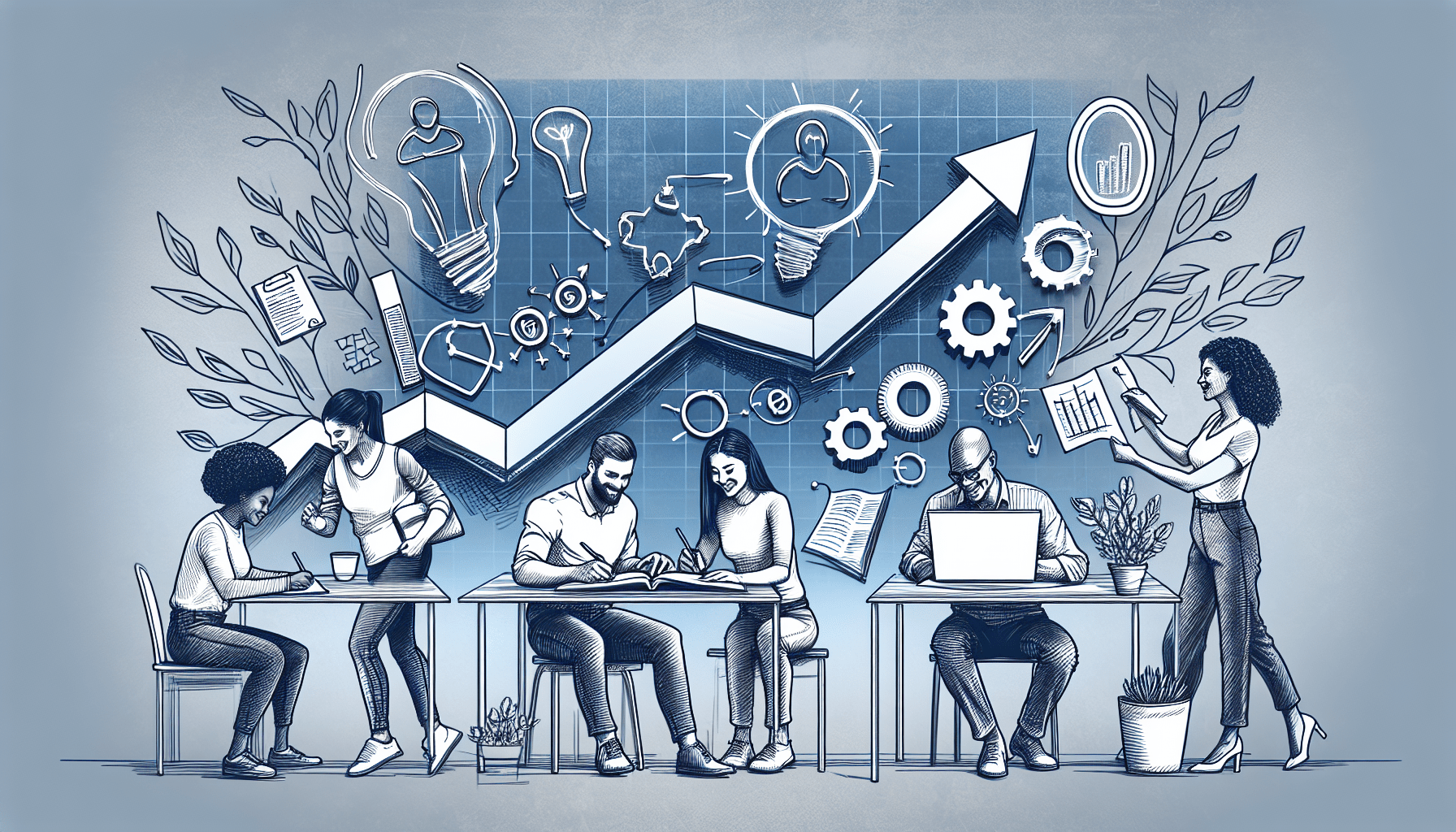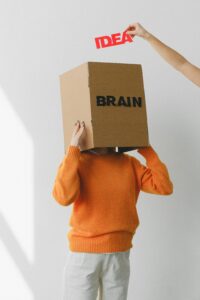Are you ready to unleash your fullest potential and achieve personal development like never before? In this article, we will explore the concept of a growth mindset and provide you with essential tips on how to cultivate it in your own life. By embracing a growth mindset, you will be empowered to overcome challenges, embrace continuous learning, and ultimately flourish in all areas of your personal development journey. Get ready to transform your mindset and unlock a world of endless possibilities.
Understanding the Growth Mindset
Definition of a growth mindset
A growth mindset refers to the belief that abilities, talents, and intelligence can be developed and improved over time with effort, dedication, and a positive attitude. Individuals with a growth mindset understand that their potential is not fixed and that through consistent learning, practice, and perseverance, they can achieve their goals and overcome challenges. In essence, having a growth mindset means embracing the idea that personal qualities and skills can be cultivated and developed throughout one’s life.
The importance of a growth mindset for personal development
Having a growth mindset is essential for personal development as it provides individuals with the mental framework and tools necessary to navigate through life’s challenges and pursue their goals. By adopting a growth mindset, individuals become more resilient, adaptable, and open to new experiences. They develop a passion for continuous learning and improvement, enabling them to reach their full potential. Moreover, a growth mindset allows individuals to overcome setbacks, view failure as a stepping stone to success, and maintain a positive attitude throughout their personal development journey.
Contrasting a growth mindset with a fixed mindset
In contrast to a growth mindset, a fixed mindset refers to the belief that abilities and intelligence are fixed traits that cannot be significantly changed or improved. Individuals with a fixed mindset tend to view their talents and abilities as predetermined, leading them to avoid challenges, fear failure, and stay within their comfort zones. They often perceive effort as fruitless and struggles as signs of incompetence. Additionally, individuals with a fixed mindset may feel threatened by the success of others and view it as a reflection of their own inadequacy.
Recognizing Fixed Mindset Traits
Believing abilities are fixed and cannot be changed
One of the key indicators of a fixed mindset is the belief that abilities are fixed and cannot be changed or improved. Individuals with a fixed mindset may feel that their intelligence, talents, or skills are predetermined and cannot be significantly developed through effort or practice. This belief can be limiting, as it discourages individuals from exploring their full potential and pursuing personal growth.
Avoiding challenges and fearing failure
Individuals with a fixed mindset tend to avoid challenges and fear failure. They may shy away from taking on new tasks or pursuing goals that require stepping out of their comfort zones. The fear of failure stems from the belief that failure is a reflection of their incompetence or lack of ability, rather than an opportunity for growth and learning.
Getting discouraged by setbacks and obstacles
When faced with setbacks or obstacles, individuals with a fixed mindset may become easily discouraged and give up quickly. They view setbacks as evidence of their lack of ability rather than as opportunities to learn and improve. This mindset hinders personal development as it prevents individuals from persevering through challenges and bouncing back from failures.
Viewing effort as fruitless
Individuals with a fixed mindset often perceive effort as fruitless, believing that if they have to work hard at something, it must mean they lack natural talent or ability. This mindset leads to a lack of motivation and effort, as individuals may believe that their abilities are fixed and therefore cannot be improved through hard work or dedication.
Feeling threatened by the success of others
A fixed mindset often leads individuals to feel threatened or envious of the success of others. Instead of being inspired or motivated by the achievements and accomplishments of others, individuals with a fixed mindset may interpret it as evidence of their own shortcomings. This mindset can foster a competitive and judgmental attitude, hindering personal growth and preventing individuals from learning from others.
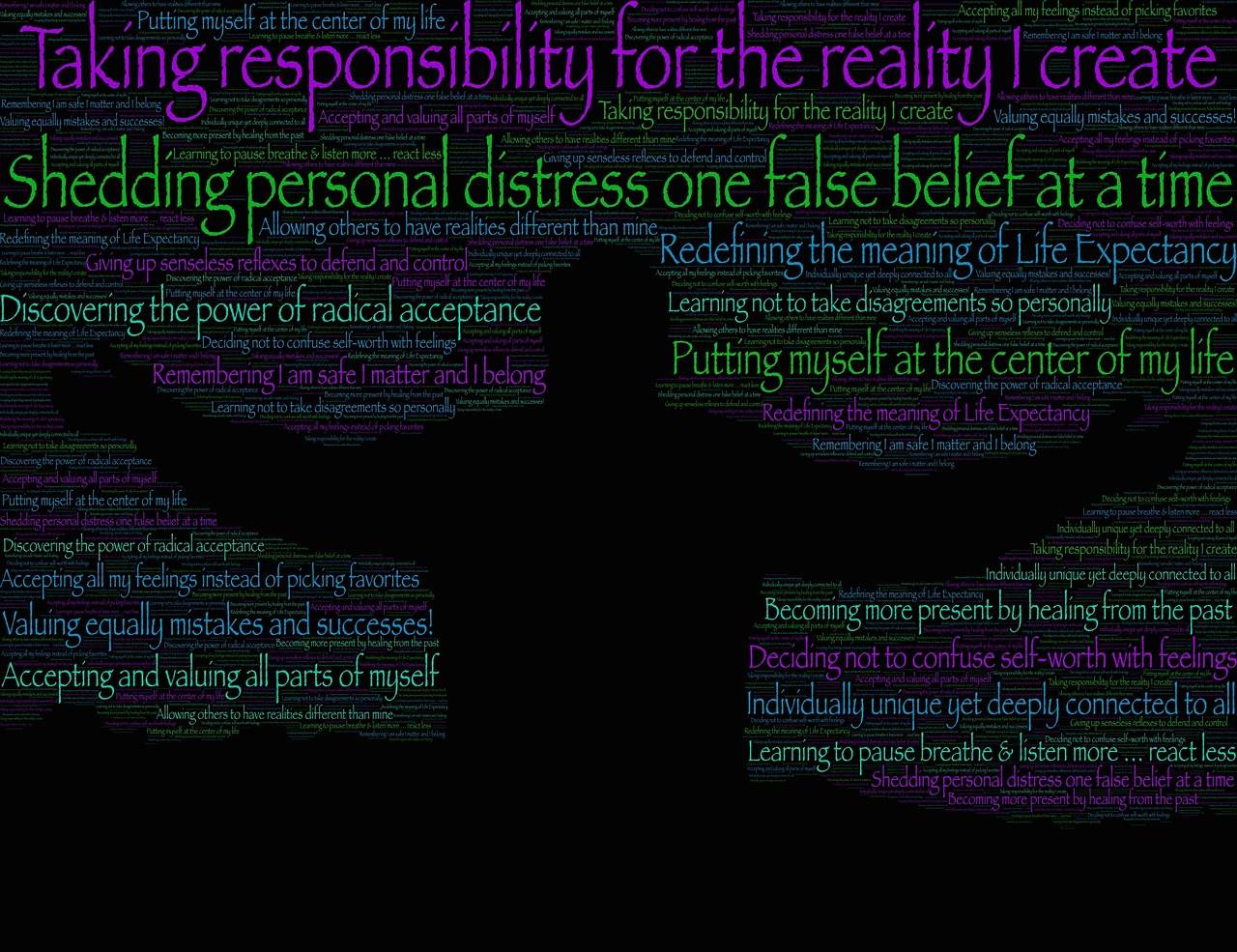
Embracing the Growth Mindset
Believing in the potential for growth and improvement
Embracing a growth mindset starts with believing in your potential for growth and improvement. Recognize that your abilities and intelligence are not fixed, but rather can be developed and expanded through dedicated effort and perseverance. By adopting a positive belief in your ability to learn and grow, you set the foundation for personal development.
Embracing challenges and seeking opportunities for growth
To cultivate a growth mindset, it is crucial to embrace challenges and seek opportunities for growth. Instead of avoiding difficult tasks or shying away from new experiences, challenge yourself to step outside of your comfort zone. Embrace challenges as opportunities for learning and personal growth, knowing that each new experience will allow you to develop new skills and expand your abilities.
Valuing effort and perseverance
In a growth mindset, effort and perseverance are highly valued. Understand that sustained effort, even in the face of difficulties, is essential for personal growth and development. Rather than viewing challenges as insurmountable obstacles, see them as opportunities to demonstrate your dedication and willingness to put in the necessary work to achieve your goals.
Learning from setbacks and using them as opportunities for learning
Setbacks are an inevitable part of any personal development journey. Embracing a growth mindset means viewing setbacks as opportunities for learning and improvement. Rather than getting discouraged or giving up when faced with a setback, reflect on what went wrong and how you can use that experience to enhance your abilities and overcome future challenges.
Finding inspiration in the success of others
Instead of feeling threatened or envious of the success of others, a growth mindset allows you to find inspiration and motivation in their achievements. Recognize that the success of others does not diminish your own potential for growth and improvement. Celebrate the accomplishments of others and allow them to inspire you to reach new heights in your personal development journey.
Developing a Positive Attitude
Cultivating optimism and a positive outlook
Developing a positive attitude is crucial for fostering a growth mindset. Cultivate optimism and a positive outlook by focusing on the possibilities and opportunities that lie ahead. Rather than dwelling on past failures or setbacks, focus on what you have learned from those experiences and how they can contribute to your future success.
Practicing self-reflection and self-awareness
Self-reflection and self-awareness are essential tools for developing a growth mindset. Take the time to reflect on your thoughts, beliefs, and behaviors. Are they aligned with a growth mindset, or are there areas that need improvement? By becoming self-aware, you can identify any fixed mindset tendencies and work towards shifting your perspective towards a more growth-oriented mindset.
Challenging negative thoughts and beliefs
In order to foster a growth mindset, it is important to challenge negative thoughts and beliefs that may be holding you back. Be mindful of and question any beliefs that suggest your abilities are fixed or that failure is a personal reflection of your worth. Replace negative thoughts with positive affirmations that reinforce a belief in your ability to learn and grow.
Practicing gratitude and focusing on the positive
Practicing gratitude and focusing on the positive aspects of your life can help cultivate a growth mindset. Take time each day to reflect on what you are grateful for and acknowledge your achievements, even the small ones. By shifting your focus to the positive, you can foster a more positive mindset overall and develop a greater appreciation for the growth and progress you have made.
Surrounding yourself with positive influences
The people we surround ourselves with can have a significant impact on our mindset and personal development. Surround yourself with positive influences – individuals who believe in growth and support your journey towards personal development. Seek out friends, mentors, and role models who inspire and encourage you to embrace a growth mindset.

Setting Goals and Taking Action
Setting achievable goals that stretch your abilities
To develop a growth mindset, it is important to set goals that challenge and stretch your abilities. Aim for goals that push you out of your comfort zone and require growth and development. By setting achievable but ambitious goals, you create opportunities for personal growth and development.
Breaking down big goals into smaller, manageable steps
To avoid overwhelm and ensure steady progress, break down big goals into smaller, manageable steps. This allows you to focus on one step at a time, increasing your chances of success. By celebrating the completion of each smaller step, you reinforce a sense of achievement and maintain motivation along your personal development journey.
Creating a plan and taking consistent action
Developing a growth mindset requires taking consistent action towards your goals. Create a plan that outlines the steps and actions you need to take to achieve your objectives. Schedule regular time for focused work and make a commitment to yourself to follow through. By consistently taking action, you demonstrate your dedication to personal growth and development.
Seeking feedback and adapting your approach
Seeking feedback is vital for personal development and cultivating a growth mindset. Actively seek feedback from mentors, peers, and experts in your field. Be open to constructive criticism and use it as an opportunity to identify areas for improvement. Adapt your approach and strategies based on the feedback you receive, ensuring continuous growth and development.
Celebrating progress and learning from failures
Celebrate your progress and achievements along your personal development journey. Recognize and acknowledge the growth you have made, even in the small wins. Equally important, learn from your failures and setbacks. Embrace them as opportunities for growth and reflection, using them to refine your approach and strengthen your abilities.
Embracing Life-Long Learning
Developing a thirst for knowledge and continuous learning
Embracing a growth mindset requires a commitment to life-long learning. Develop a thirst for knowledge by pursuing learning opportunities, such as reading books, taking courses, attending workshops, or engaging in online learning platforms. Continuously seek out new information and challenge yourself to expand your knowledge base.
Seeking out new experiences and challenges
To foster a growth mindset, seek out new experiences and challenges that push you outside of your comfort zone. Embrace unfamiliar situations and be open to learning from them. By actively seeking out new experiences and challenges, you allow yourself to develop new skills and broaden your perspective.
Adopting a growth mindset towards failure and mistakes
A growth mindset involves adopting a positive attitude towards failure and mistakes. Rather than viewing them as signs of incompetence or inadequacy, see them as opportunities for growth and learning. Embrace the process of trial and error, knowing that each failure brings you one step closer to success.
Emphasizing the process of learning over the end result
In a growth mindset, the process of learning is valued more than the end result. Shift your focus from solely outcomes to the effort and progress you make along the way. Embrace the learning process, take pride in your dedication and persistence, and recognize that true growth and development occur through consistent effort and perseverance.
Being open-minded and willing to learn from others
An essential aspect of a growth mindset is being open-minded and willing to learn from others. Embrace different perspectives and seek out opportunities to learn from individuals who have different experiences and expertise. By being open to learning from others, you gain valuable insights that can accelerate your personal development journey.
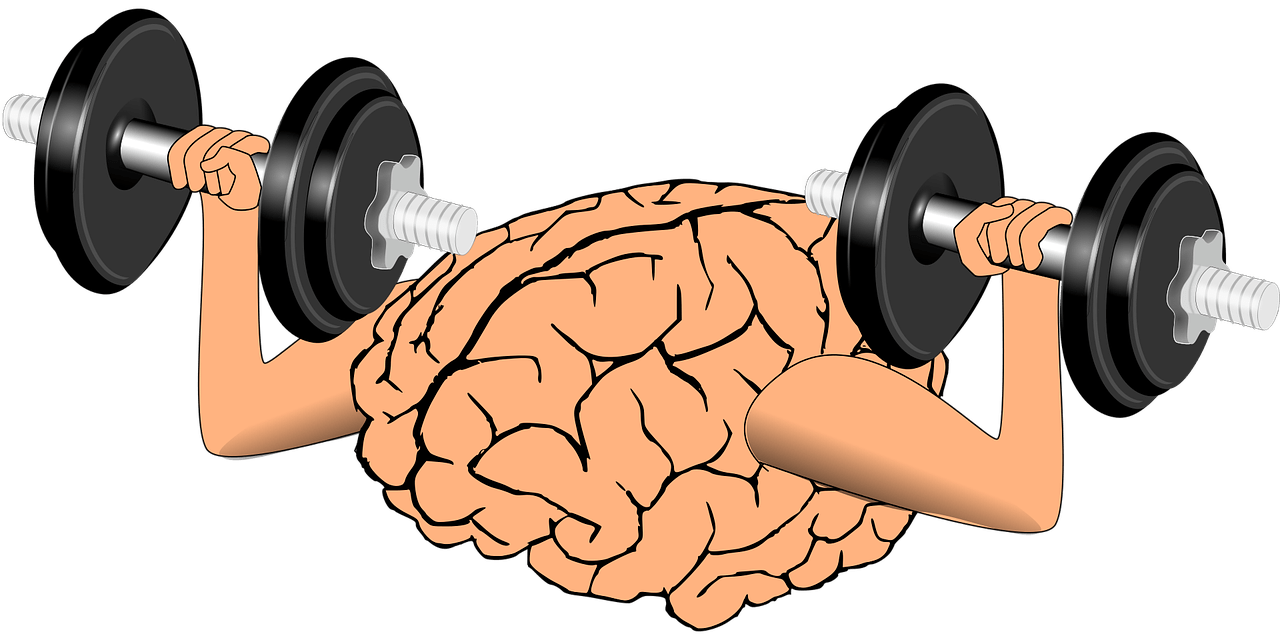
Building Resilience and Overcoming Obstacles
Viewing obstacles as opportunities for growth and learning
In order to cultivate a growth mindset, it is important to view obstacles as opportunities for growth and learning. Rather than seeing obstacles as barriers to your progress, reframe them as challenges that can help you develop new skills and resilience. Embrace the mindset that each obstacle presents an opportunity for growth and further development.
Developing resilience and bouncing back from setbacks
Resilience is a key trait associated with a growth mindset. Develop resilience by bouncing back from setbacks and failures. Instead of dwelling on past disappointments, focus on finding solutions and moving forward. Resilience allows you to maintain a positive mindset and persevere in the face of challenges, ultimately leading to personal growth and development.
Staying committed and persevering in the face of challenges
A growth mindset requires staying committed and persevering during challenging times. It can be tempting to give up when faced with difficulties, but maintaining your commitment to personal growth is essential. Remind yourself of your goals and the reasons why personal development is important to you. Stay focused, keep pushing forward, and trust in your abilities to overcome challenges.
Seeking support and learning from others’ experiences
In challenging moments, seeking support from others can provide valuable guidance and encouragement. Connect with individuals who have faced similar challenges and learn from their experiences. Seek support from mentors, peers, or support groups who can offer advice or share strategies for navigating obstacles. By drawing on the wisdom and experiences of others, you can overcome hurdles with greater ease.
Maintaining a positive and solution-oriented mindset
Maintaining a positive and solution-oriented mindset is crucial for building resilience and overcoming obstacles. Train yourself to focus on finding solutions and taking proactive steps forward rather than dwelling on the problem at hand. By approaching challenges with an optimistic and solution-oriented mindset, you empower yourself to overcome obstacles and achieve personal growth.
Seeking Feedback and Criticism
Welcoming feedback as a valuable source of growth
To foster a growth mindset, it is important to welcome feedback as a valuable source of growth and development. Recognize that feedback provides valuable insights into your strengths and areas for improvement. Embrace constructive criticism as an opportunity to grow and refine your skills.
Separating feedback from personal identity
In order to effectively receive feedback, it is important to separate it from your personal identity. Feedback should be viewed as an assessment of your actions or performance, not as a reflection of your worth as an individual. By recognizing that feedback is separate from your identity, you can more objectively evaluate it and use it for personal growth.
Actively seeking feedback from mentors, peers, and experts
To foster personal growth and development, actively seek feedback from mentors, peers, and experts in your field. Reach out to individuals who can provide insights and guidance based on their experience and expertise. Be proactive in soliciting feedback and create a safe and supportive environment for others to share their observations and recommendations.
Using feedback to identify areas for improvement
One of the key benefits of feedback is its ability to help you identify areas for improvement. When receiving feedback, reflect on the suggestions and insights provided. Recognize patterns or recurring themes in the feedback you receive. Use this information to identify specific areas where you can focus your efforts for personal growth and development.
Learning how to provide constructive feedback to others
In addition to seeking feedback, developing a growth mindset involves learning how to provide constructive feedback to others. Offering valuable and constructive feedback to others not only helps them grow but also enhances your own learning and communication skills. Mastering the art of providing feedback allows you to contribute to the growth and development of those around you.
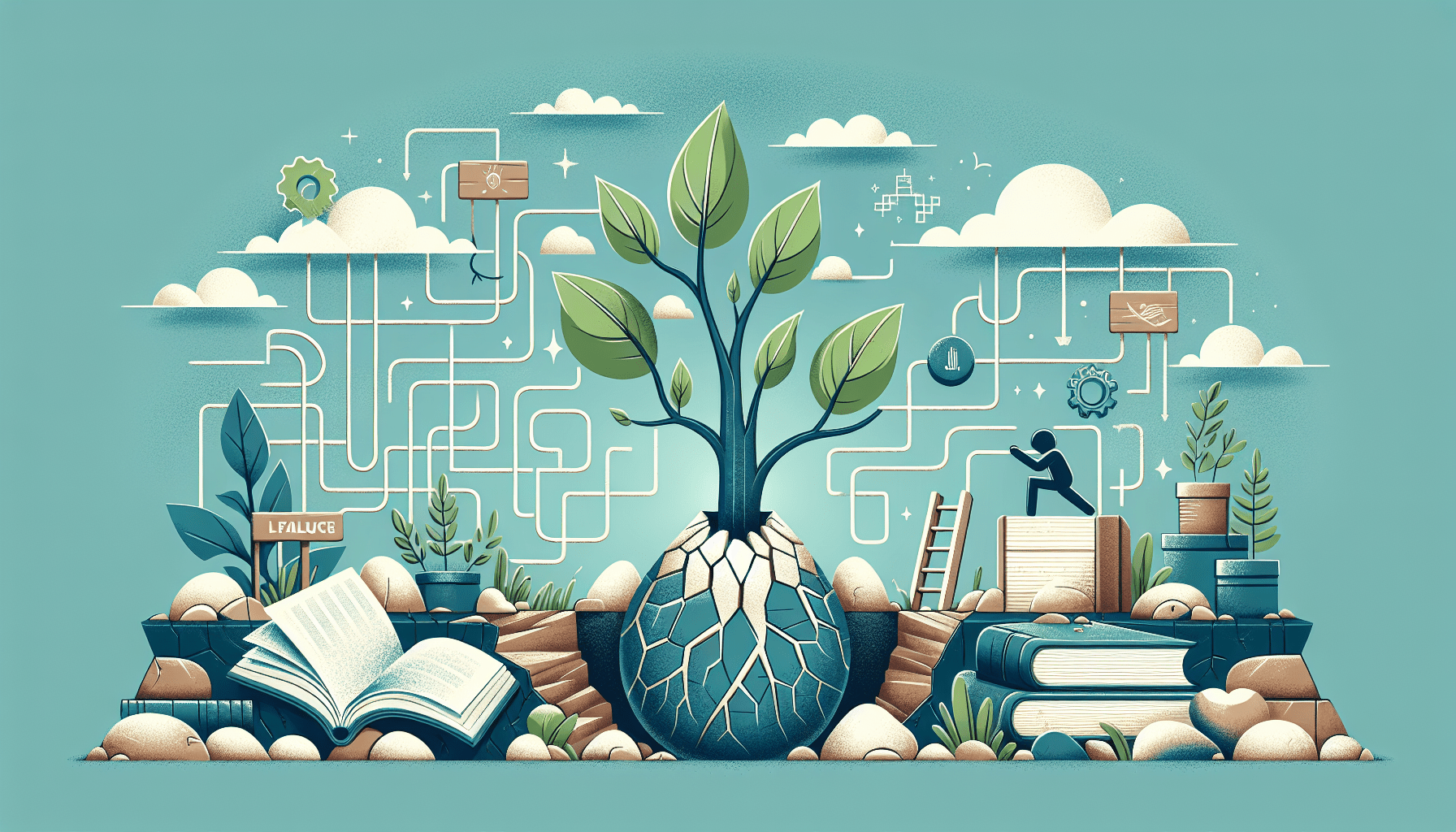
Promoting Continuous Improvement
Regularly evaluating your progress and reflecting on your journey
Promoting continuous improvement requires regularly evaluating your progress and reflecting on your personal development journey. Set aside time to review your goals, assess your progress, and consider how far you’ve come. Reflect on the lessons learned, challenges overcome, and areas where you can continue to grow and improve.
Identifying areas for improvement and setting new goals
Continuous improvement involves identifying areas for improvement and setting new goals for personal growth. Reflect on your strengths and weaknesses, and consider where you would like to enhance your abilities. Set new goals that challenge and stretch your abilities, ensuring that you continue moving forward on your personal development journey.
Experimenting with different strategies and approaches
To encourage continuous improvement, be willing to experiment with different strategies and approaches. Embrace a growth mindset by viewing failures or setbacks as opportunities to learn and adjust your approach. By experimenting with different strategies, you can refine your methods and find what works best for your personal growth and development.
Embracing mistakes as opportunities for growth
Mistakes are inevitable in any personal development journey. Instead of fearing or avoiding mistakes, embrace them as opportunities for growth. Recognize that making mistakes is a natural part of the learning process and an indication that you are stretching your abilities. Learn from your mistakes, adapt, and use them as stepping stones towards further growth.
Never settling for complacency
A growth mindset involves never settling for complacency. Resist the temptation to become stagnant or comfortable with your current level of growth. Continuously challenge yourself to push beyond your limits, tackle new experiences, and set higher goals. By embracing a mindset of continuous improvement, you can unlock your full potential and achieve personal growth throughout your life.
Creating a Supportive Environment
Surrounding yourself with like-minded individuals
Creating a supportive environment starts with surrounding yourself with like-minded individuals who embrace a growth mindset. Seek out friends, colleagues, and mentors who believe in the power of personal development and share your commitment to growth. Their positive influence and support will help reinforce your own growth mindset.
Building a network of support and accountability
To foster personal growth, build a network of support and accountability. Connect with individuals who understand the challenges and triumphs of personal development. Create opportunities for accountability by regularly checking in with trusted friends or mentors who can provide guidance, encouragement, and honest feedback.
Seeking out mentors and role models
Mentors and role models play a crucial role in personal development. Seek out individuals who have achieved success in areas you are passionate about. Learn from their experiences, seek their advice, and allow their wisdom to guide and inspire you. Mentors and role models can provide valuable insights and help you navigate the challenges of personal growth.
Avoiding negative influences and toxic relationships
Negative influences can hinder personal growth and development. Avoid individuals who discourage your ambitions or perpetuate a fixed mindset. Surround yourself with positive and supportive individuals who uplift and inspire you. By minimizing exposure to negativity, you create space for growth and foster a more conducive environment for personal development.
Encouraging and supporting others in their growth journeys
A supportive environment is built on encouragement and support for others in their growth journeys. Celebrate the accomplishments and successes of those around you. Offer your assistance and support to others as they pursue their personal goals. By fostering an environment that encourages growth in others, you also contribute to your own personal development.
In conclusion, developing a growth mindset is essential for personal development and continuous growth. By embracing the belief that abilities can be developed and improved through effort and perseverance, individuals can overcome challenges, adapt to new experiences, and achieve their full potential. By recognizing fixed mindset traits, such as the belief in fixed abilities and fear of failure, individuals can actively work towards embracing a growth mindset. Cultivating a positive attitude, setting goals, seeking feedback, and creating a supportive environment are all key steps in developing and maintaining a growth mindset. With a growth mindset, individuals can unlock their potential, navigate through obstacles, and achieve personal growth throughout their lives.
